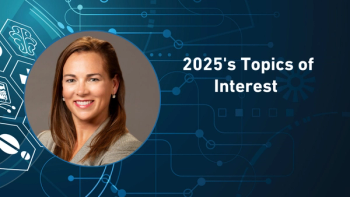Fans of the years-long saga of e-pedigree and track-and-trace technology will remember the IBM commercials from 2011, featuring IBM execs touting their drug-tracking expertise as part of IBM’s “Smarter Planet” campaign. In a turnabout, though, the company has quietly announced the sale of its InfoSphere Traceability Server (ITS) to Frequentz, LLC (Los Altos, CA). The announcement (not released in IBM’s corporate press room) only says that “Frequentz acquired the IBM InfoSphere Traceability Server in Oct 2, 2012. All future information regarding the InfoSphere Traceability Server products will be available from Frequentz.” Frequentz has a very sketchy website at this moment; it mentions that its founder, Michael Lucas, is also chairman of a company called Unisone, which has a portfolio of RFID-related technologies. A tip of the hat to Dirk Rodgers, owner of the RxTrace.com blog, for ferreting out the IBM notice.
InfoSphere (formerly named the IBM WebSphere RFID Information Center) was IBM’s play in managing cross-industry data-sharing of serialized data (like pharma pedigrees); if you jump fast, you can still get fairly comprehensive product specifications in an IBM content repository. The product seemed to be getting continuous updating through mid-2010, but there has been little news of industry implementions. (One old reference, still in place at the client’s website, is Golden State Medical Supply of Camarillo, CA; this occurred in 2008 as GSMS was ramping up for the then-January 2009 deadline for California’s e-pedigree program, and Frequentz has some level of collaboration with it.)
On his blog, Rodgers speculates that the action might be due to a shift in thinking from a software interface tool like InfoSphere to a cloud-based service. For the past year, the GS1 organization has been trying to drum up interest in (take a breath) the Pedigree Security, Choreography and Checking Service Maintenance Standards Working Group (WO 12-127), which in turn is part of the GS1 Global Standards Management Process (GSMP).
There are other vendors of serialized data collection and storage, such as Axway, Oracle, rfXcel and SAP; SAP is in the process of rolling out its Global Batch Traceability system, which could incorporate drug-tracking (GBT is not specific to pharma). Meanwhle, GHX, an established hub for transactions involving medical products, is piloting a cloud-based drug-tracking service. All this was occurring while, over the past year, the Pharmaceutical Distribution Security Alliance, comprising manufacturers, wholesalers and some retailer organizations were trying to get a drug-tracking law passed in Washington, but that effort failed. Part of its lack of success was attributed to its stance of not tracking drug products at the item level.






